Today’s Current Affairs: 11th June 2024 for UPSC IAS exams, State PSC exams, SSC CGL, State SSC, RRB, Railways, Banking Exam & IBPS, etc
Table of Contents
Proportional Representation:
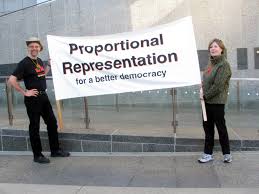
The ruling NDA has won 293 seats with a 43.3% vote share while the Opposition bloc INDIA has secured 234 seats with a 41.6% vote share. Other regional parties and independents polled around 15% but ended up with only 16 seats in total.
- The Proportional Representation (PR) system ensures representation of all parties based on their vote share.
- The most commonly used PR system is the ‘party list PR’ where voters vote for the party (and not individual candidates) and then the parties get seats in proportion to their vote share.
- India currently uses the First Past the Post (FPTP) system, where the candidate with the most votes in a constituency wins.
- The FPTP system is simple and provides stability to the executive, but it can lead to unrepresentative governments.
- To balance stability and proportionate representation, the Mixed Member Proportional Representation (MMPR) system can be considered.
- Under MMPR, there is one candidate elected through FPTP from each territorial constituency, and additional seats are allocated to parties proportionally based on their vote share.
SPS Agreement:
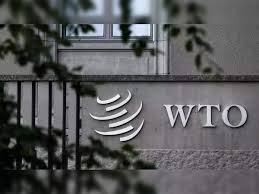
India and the US informed the World Trade Organization (WTO) that they have reached a mutually agreed solution on the outstanding dispute on poultry imports from Washington, thereby resolving all of their seven disputes at the global trade watchdog.
- The Agreement on the Application of Sanitary and Phytosanitary Measures (SPS Agreement) is a treaty of the World Trade Organization (WTO) that came into force with the establishment of the WTO on January 1, 1995.
- It sets out the basic rules for food safety and animal and plant health standards.
- SPS measures must be based on scientific principles and sufficient evidence, except for provisional measures.
- Members are encouraged to align SPS measures with international standards set by bodies like Codex Alimentarius, OIE, and IPPC.
- SPS measures of other countries should be accepted as equivalent if they achieve the same level of protection.
- Countries must conduct risk assessments to determine the appropriate level of protection, considering the impacts of pests or diseases.
- Members should recognize pest- or disease-free areas and areas of low prevalence, even if within a single country or group of countries.
- Countries must notify changes in SPS measures and provide regulatory information through the WTO’s SPS notification system.
- These disputes can be taken to the WTO’s Dispute Settlement Body (DSB) if consultations fail.
Cabinet Committee On Security (CCS):
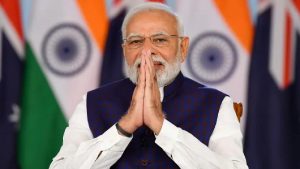
Prime Minister Modi took oath today along with 71 ministers of the new coalition government. Thirty of them are Cabinet Ministers, five independent charge, and 36 Ministers of State.
- Cabinet Committee on Security (CCS) is headed by the Prime Minister.
- The Committee discusses, debates, and is the apex body when it comes to the appointments of the officials in the national security bodies.
- It also makes all the important decisions on defence policy and expenditure and, generally, all matters of India’s security
- PM, Ministers of Defence, Home Affairs, Finance and External Affairs.
- It Deals with all the issues related to the defence and security of India.
- The CCS deals with all issues related to the law and order and national security of India.
- It discusses different initiatives to take to enhance the national security of India.
- It also deals with policy matters of foreign affairs which may have a bearing on internal or external security implications, including cases relating to agreements with other countries on security-related issues.
- The Committee discusses the political issues which can impact the security of our nation.
Quantum Data:

A new quantum computing study claims that a recent finding in the production, storage and retrieval of “quantum data” has brought us one step closer to the quantum internet
- Quantum Data refers to information that is stored and processed using the principles of quantum mechanics.
- Unlike classical data, which is represented by binary states (0s and 1s), quantum data is represented by quantum bits or qubits.
- Qubits can exist in multiple states simultaneously due to a property called superposition, and they can be entangled with other qubits, allowing for a kind of interconnectedness and correlation that classical bits cannot achieve.
Applications of Quantum Data:
- Quantum key distribution (QKD) leverages the principles of quantum mechanics to create secure communication channels that are theoretically immune to eavesdropping.
- Quantum algorithms can potentially solve complex optimization problems more efficiently than classical algorithms.
- Quantum computers can simulate other quantum systems, which is useful for understanding chemical reactions, materials science, and fundamental physics.
- Quantum machine learning algorithms could handle large datasets and complex models more efficiently.
Operation Bluestar:
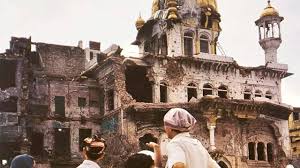
Slogans favouring Khalistan (sovereign state for Sikhs) were raised recently in the premises of the Golden Temple complex in Punjab’s Amritsar during the 40th anniversary of ‘Operation Bluestar’.
- Operation Bluestar was an Indian military operation in June 1984 ordered by Prime Minister Indira Gandhi to root out a group of militant Sikh separatists who had occupied the Golden Temple in Punjab’s Amritsar, the Sikhs’ holiest shrine.
- The leader of the group was Jarnail Singh Bhindranwale, a Sikh fundamentalist, former head of the Sikh seminary Damdami Taksal, and a key figure in the then-emerging separatist Khalistan movement.
- The military operation was planned to regain control of the complex while minimizing civilian casualties.
- The operation began on June 1, 1984, with the deployment of Indian Army troops around the Golden Temple complex. Bhindranwale and his followers fiercely resisted the army’s advance, leading to intense gun battles.
- The Indian Army intensified its assault on the complex, using heavy artillery, tanks, and helicopters.
- The fighting resulted in extensive damage to the Akal Takht, the highest temporal seat of Sikh authority, as well as other parts of the Golden Temple.
- The operation officially concluded on June 6, 1984, when the Indian Army gained control of the Golden Temple complex.
- While the army was successful in achieving its goals, some Sikhs were outraged as they saw the operation as an attack on their faith.
- According to the Indian government, about 400 people were killed, including 87 soldiers.
- Operation Blue Star led to the assassination of Prime Minister Indira Gandhi, who was killed by her Sikh bodyguards in revenge five months after the operation.
Suhelwa Wildlife Sanctuary (SWS) : New Tiger Reserve

New tiger reserve will soon be established in Uttar Pradesh, following evidence of tiger population in the Suhelwa Wildlife Sanctuary (SWS).
- Suhelwa Wildlife Sanctuary (SWS) is located in the Shravasti, Balrampur, and Gonda districts of Uttar Pradesh.
- The forest of SWS was owned by the Maharaja of Balrampur before the implementation of the Zamindari Abolition Act 1952 and was known as Balrampur Estate.
- It was declared a Wildlife Sanctuary in 1988.
- Sprawling an area of 452 sq km, this sanctuary is a strip of land, approximately, 120 km long from the east to west and 6-8 km wide.
- The Sohelwa Wildlife Division is situated on the Indo-Nepal International Border.
- It is one of the important places in the Bhabar-Terai Ecosystem area,which is rich in biodiversity.
- The Tharu tribe, having mongoloid features, have been residents of this area since long.
IPEF Ministerial Meeting 2024:
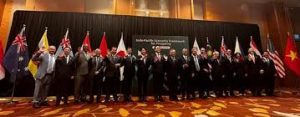
India participated in the Indo-Pacific Economic Framework for Prosperity (IPEF) Ministerial Meeting, held in Singapore on 6th June 024, showcasing the significant strides made in fostering economic engagement among partner countries in the Indo-Pacific region.
- IPEF members signed 3 agreements focused on the Clean Economy, Fair Economy, and the overarching IPEF Agreement.
- India did not formally sign these agreements as the domestic approval process is still underway.
- It aims to accelerate efforts towards energy security, climate resilience, and reducing GHG emissions.
- India has taken a leading role in launching a new collaborative effort called a “Cooperative Work Programme” (CWP) that is focused on recovering valuable resources from electronic waste, also known as e-waste urban mining.
- IPEF Catalytic Capital Fund was launched to support clean economy infrastructure projects in IPEF emerging and upper-middle-income economies.
- The founding supporters such as Australia, Japan, Korea, and the US have provided USD 33 million as an initial grant funding to catalyse USD 3.3 billion in private investment.
- It aims to create a more transparent and predictable business environment, promote fair competition, and enhance efforts against corruption.
- India highlighted a training program in Digital Forensics & System-Driven Risk Analysis that it will offer to other IPEF partners.
- It provides digital skills training, primarily to women and girls, in IPEF partner countries.
- In the last 2 years, it has provided 10.9 million upskilling opportunities, of which 4 million were in IndIPEF?
ABHA-Based Scan And Share Service:

The National Health Authority (NHA) has achieved a milestone of generating over 3 crore tokens for Out-Patient Department (OPD) registrations through the ABHA-based Scan and Share service.
- It enables patients to conveniently register for OPD appointments by scanning a QR code displayed at the OPD registration counter.
- It has eliminated the need to wait in long queues for appointments, benefiting vulnerable groups such as the elderly, pregnant women, and those with mobility challenges.
- Uttar Pradesh has generated the maximum tokens followed by Andhra Pradesh, Karnataka and Jammu and Kashmir.
- This service was launched under the Ayushman Bharat Digital Mission (ABDM) in 2022.
- ABHA is a unique 14-digit number used to link all the health records of a person, which intends to create a digital health ecosystem & aims to promote the digitisation of healthcare.
Greening Curriculum Guidance : UNESCO
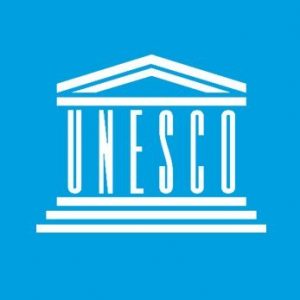
UNESCO has launched the Greening Curriculum Guidance (GCG) and Green School Quality Standards (GSQS) under the Greening Education Partnership.
- Greening at least 50% of schools globally by 2030 through the Greening Education Partnership.
- Target Audience: Policy-makers, education ministries, educators, learners, and communities.
- A practical manual outlining climate education, detailing learning outcomes, and guiding countries to integrate environmental topics into curricula.
- Sets minimum requirements for creating green schools through an action-oriented approach.
Pillars of Green Education:
- Greening Schools: Ensure schools achieve green accreditation.
- Greening Curriculum: Integrate climate education into all levels of education.
- Greening Teacher Training: Build school capacities for climate education.
- Greening Communities: Enhance community resilience through learning centres.
Greening Education Partnership:
- The Greening Education Partnership is a global initiative comprising 80 member states, aiming to tackle the climate crisis through education.
- It focuses on equipping learners with the knowledge, skills, values, and attitudes necessary to address climate change and promote sustainable development.
- The partnership emphasizes greening schools, integrating climate education into curricula, enhancing teacher training, and strengthening community resilience.
Base Erosion And Profit Shifting:
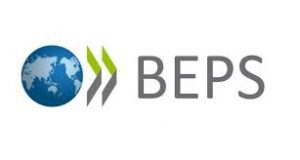
The 16th meeting of the OECD/G20 Inclusive Framework on Base Erosion and Profit Shifting (BEPS) concluded
- An inclusive framework on BEPS is finalizing negotiations on Pillar One, while the Global Minimum Tax under Pillar Two is being implemented in countries globally
- The OECD/G20 Inclusive Framework on BEPS, with 147 countries and jurisdictions including India, fights tax avoidance and promotes fair tax practices through a Two-pillar approach: Pillar One reallocates profits of large MNEs, while Pillar Two establishes a Global Minimum Corporate Tax of 15%.
- This framework ensures fairness in tax systems, addresses tax avoidance, and adapts to evolving business models and digital economies.
BEPS:
- It refers to corporate tax planning strategies used by multinationals to shift profits from higher-tax jurisdictions to lower or no-tax jurisdictions.
- The OECD defines BEPS strategies as exploiting gaps and mismatches in tax rules.
- It erodes the tax base (costing countries USD 100-240 billion in lost revenue annually) of the higher-tax jurisdictions.
- As developing countries have a higher reliance on corporate income tax, they suffer from BEPS disproportionately.
TRISHNA Mission:

Thermal Infrared Imaging Satellite for High-resolution Natural Resource Assessment (TRISHNA) mission, a collaboration between ISRO and CNES (French Space Agency), aims to monitor surface temperature and water management globally.
- It includes two primary payloads: Thermal Infra-Red (TIR) from CNES for infrared imaging and VNIR-SWIR from ISRO for surface reflectance mapping.
- Operating in a Sun-synchronous orbit, it will aid climate monitoring, urban planning, and disaster management.
- The mission aims to monitor the energy and water budgets of continental biospheres, alongside high-resolution observation of water quality and dynamics.
- It provides detailed monitoring of surface temperature, emissivity, and radiation variables, aiding regional to global surface energy budgeting.
- Additionally, it assists in assessing urban heat islands, detecting thermal anomalies, and monitoring snow-melt runoff, glacier dynamics, aerosol optical depth, atmospheric water vapour, and cloud cover.
ISRO Set For Final RLV Landing Experiment:
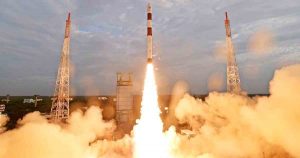
The Indian Space Research Organization (ISRO) is putting its Reusable Launch Vehicle (RLV) technology through a set of testing that are very important. Within a larger plan to create spacecraft that can be launched, recovered, and used again, these tests are a big part of making space trips much cheaper.
- The third and final RLV Landing Experiment (RLV LEX), which is part of ISRO’s ongoing work, is set to happen in the first half of June.
- As long as the weather is good, this test will take place at the Aeronautical Test Range in Chitradurga, Karnataka.
- This important goal has been reached by the task readiness review.
- For the RLV LEX flights, an unmanned prototype with wings is used. It is called “Pushpak.”
- The upcoming LEX-03 mission will be harder because an IAF Chinook helicopter will have to take Pushpak to a height of 4.5 km and 500 meters laterally from the runway.
- When it is let go, Pushpak has to find its way to the runway by itself, changing its direction and altitude as needed before landing.
- This mission will also try to lower the sink rate so that the effect on landing is less severe.
- A real-time kinematics (RTK) package will be used to help with this.
List Of Cabinet Ministers Of India 2024 In PM Modi 3.0:
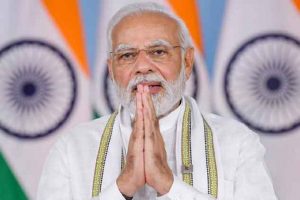
The Bharatiya Janata Party (BJP) emerged as the single largest party in the 18th Lok Sabha, securing 240 seats.
- This marks a significant decrease from their previous tallies of 303 seats in 2019 and 282 seats in 2014. However, the party’s performance has been sufficient to form the government at the center.
- The Indian National Congress, the principal opposition party, managed to secure 99 seats.
Ministry of Personnel, Public Grievances and Pensions, Department of Atomic Energy, Department of Space, All important policy issues:
- Prime Minister Narendra Modi
Minister of Earth Sciences, And Minister of Food Processing Industries :
- Kiren Rijiju
Ministry of Education:
- Dharmendra Pradhan
Minister of Jal Shakti :
- CR Paatil
Civil Aviation Minister :
- Ram Mohan Naidu
Agriculture Minister:
- Shivraj Singh Chouhan
Ministry of Micro, Small & Medium Enterprises :
- Jitan Ram Manhji
Ministry Of Information And Broadcasting :
- Ashwini Vaishnaw
Ministry, Housing And Urban Affairs:
- Manohar Lal Khattar
Ministry of Home Affairs:
- Amit Shah
Defence Ministry:
- Rajnath Singh
Ministry of Road Transport and Highways:
- Nitin Gadkari
Ministers of State in the Ministry :
- Ajay Tamta
Ministers of State in the Ministry:
- Harsh Malhotra
Ministry of Heavy Industries:
- HD Kumaraswamy
Ministry of Telecommunication:
- Jyotiraditya Scindia
Ministry of Health:
- JP Nadda
Ministry of Commerce and Industry:
- Piyush Goyal
Minister Of Women And Child Development:
- Annpurna Devi
Ministry of Petroleum and Natural Gas :
- Hardeep Singh Puri
Ministry of Ports, Shipping and Waterways:
- Sarbananda Sonowal
Minister of Panchayati Raj and Minister of Fisheries, Animal Husbandry and Dairying :
- Rajiv Rajan Singh
Minister of Consumer Affairs, Food and Public Distribution and Minister of New and Renewable Energy :
- Pralhad Joshi
Ministry of Tribal Affairs :
- Jual Oram
Minister of Textiles:
- Giriraj Singh
Minister of Coal and Minister of Mines:
- G Kishan Reddy
Ministry Of Skill, Entrepreneurship and Minister of State in the Ministry of Education:
- Jayant Chaudhary (Independent Charge)
Indian Navy’s First Woman Helicopter Pilot:

Sub Lieutenant Anamika B. Rajeev made history at INS Rajali, Arakkonam, when she became the first woman in the Indian Navy to fly a helicopter. Last week, this important milestone was reached during the passing out parade. The 102nd Helicopter Conversion Course was completed.
- During the event, Vice Admiral Rajesh Pendharkar, who is in charge of the Eastern Naval Command, also gave the prestigious “Golden Wings” to 21 officers.
- The passing out parade, which took place on June 7, marked the end of both Stage I training for the 4th Basic Helicopter Conversion Course and graduation from the conversion course.
- Lieutenant Gurkirat Rajput won the FOC-in-C, Eastern Naval Command Rolling Trophy for being the best pilot among his peers.
- The Sub-Lieutenant Kunte Memorial Book Prize was given to Lt Nitin Sharan Chaturvedi for his outstanding work on ground topics.
- Lieutenant Deepak Gupta won first place in the Overall Order of Merit and was given the Governor of Kerala Rolling Trophy.




